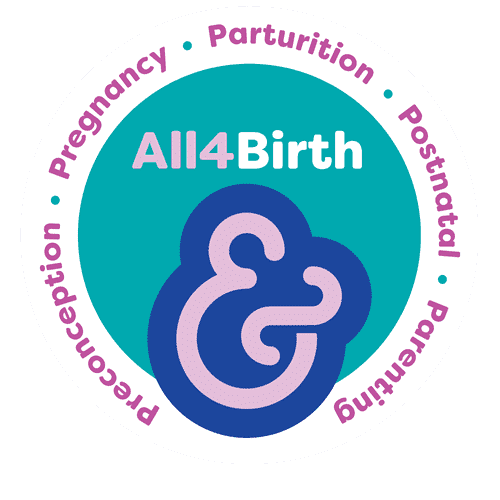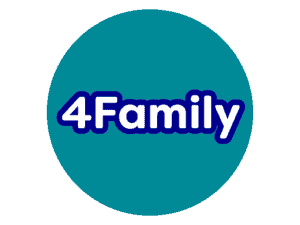When Systems Fail Families
Michael Johnson-Ellis
Co-Founder & Co-CEO | My Surrogacy Journey
Social: @officialmysurrogacyjourney
For those of us who build our families via a fertility clinic, who are lucky enough to have a pregnancy, we tend to develop a unique relationship with a team of professionals who have held us through the obstacles of trying to conceive. They understand any previous fertility complications, our family structures, our desire to be parents, our losses and any trauma that may have been experienced along the journey. This is especially complex when surrogacy has been used too, so when the time comes for the clinic to discharge you to the wider NHS system (usually they are advised to contact the GP after a 7-week scan to book in for their 12–15-week scan. Most fertility clinics offer the 10-week scan, and they are discharged after that, but we would always ask at that scan – Have you registered with your midwife?) A seamless handover is rarely achieved. Parents through surrogacy, like Wes and I combined with our surrogate and her husband, had to be the educators and advocates for what our care needed to reflect to ensure no partner was excluded.
When Wes and I embarked on our first journey in 2016, we quickly discovered that once we were discharged from the trusted space of the fertility clinic, our NHS Hospital didn’t understand much about us, our journey and surrogacy. We later turned this around by working with one of the Lead Midwives and our incredible Consultant (once we insisted on changing our original Consultant, who wasn’t prepared to listen to our care needs). We created not only a more inclusive treatment pathway for us, but what that would later become policy in this NHS Trust that rippled out to almost 80 more.
The day of our first scan was an exciting milestone for us, just like any other new parent-to-be. However, the excitement was short-lived when the sonographer called us to the room to see our baby on the screen. Caroline was already prepped in the scanning room and had given instructions to the healthcare professional that we were the Dads in the waiting area; the sonographer called our names across the waiting room and then said, ‘Only the real Dad is allowed in here!’ Hearts sank, our faces flushed, and we knew we’d fight with our hands if we wanted to be a part of our pregnancy with Caroline and her husband, Dave. When we eventually convinced the team to let us all in the scanning room, the mood was hostile, and whilst the moment was still special, we felt as if we didn’t belong there. We then met our original consultant, and things didn’t improve. He told us everything we couldn’t do, rather than what the Trust were prepared to do. He referred to Caroline as ‘Mum’ despite her telling him she was not the baby’s mother. He said we couldn’t be present at appointments, that we weren’t allowed on the maternity ward for safeguarding purposes and that we wouldn’t be at our child’s birth. When the time came to meet our baby, this would need to be off NHS property, and the Trust wouldn’t want to be held accountable for ‘human trafficking’. We never made any demands that would give us preferential treatment; we just wanted to be at the birth of our child and spend those precious first hours bonding as a new family of three. We were shocked and utterly devastated, but we knew we had to fight for what was right. The Lead Midwife who accompanied our consultation also appeared shocked at how the news was delivered. We asked for a new Consultant, and in the meantime, we took legal advice.
The findings from the initial legal assessment with this trust revealed that they had breached 12 counts of the Equality Act. For us, financial gain was never the motivation, so we offered to drop any litigation if they would allow us to work with the incredible Lead Midwife and our new, wonderful female Consultant to create an inclusive surrogacy pathway for us and all those who followed us.
The policy was introduced shortly after Talulah’s birth in late 2016 and was shared with other NHS Trusts in the North of England. It was even discussed at strategic Senior Midwife meetings nationwide. Later in 2018, following the promotion of this work,k we were later asked to contribute to the Gov.UK guidance for healthcare professionals, which acts as a guide especially for maternity services to create an inclusive pathway to parenthood via surrogacy.
The day of the birth was everything we hoped it would be; both Wes and I, plus Caroline’s husband, were all allowed in the theatre as we all welcomed Talulah into the world. The process thereafter was perfect, and the best part – when we returned in 2019 for the birth of Duke, we had the same clinical team, this time, there was no constant explaining or making excuses. The process ran smoothly, with compassion and like any other new family being celebrated and cheered.
Tips when managing surrogacy cases
- Ask everyone what how they would like to be addresses and don’t default to calling the surrogate ‘Mum’
- Try to understand of the journey to pregnancy, especially when it comes to fertility treatment and the history of all the patients/parents
- Include parents in the conversations during appointments. By not doing this can be triggering especially when there may be one parent who doesn’t share genetics to the child (when a donor has been used)
- Ask to see their birthing preference document if they have one
- Don’t assume the intended mother won’t be breastfeeding
- Accommodate parents where it’s safe to do so when being present at the birth, providing the surrogate consents
- Where it’s possible accommodate the parents where its logistically possible with giving access to a private room/space to feed and bond with their newborn
- As yourself, what’s the right thing to do? Apply compassionate, inclusive care and allow this new family the birthing experience all patients are entitled to experience









